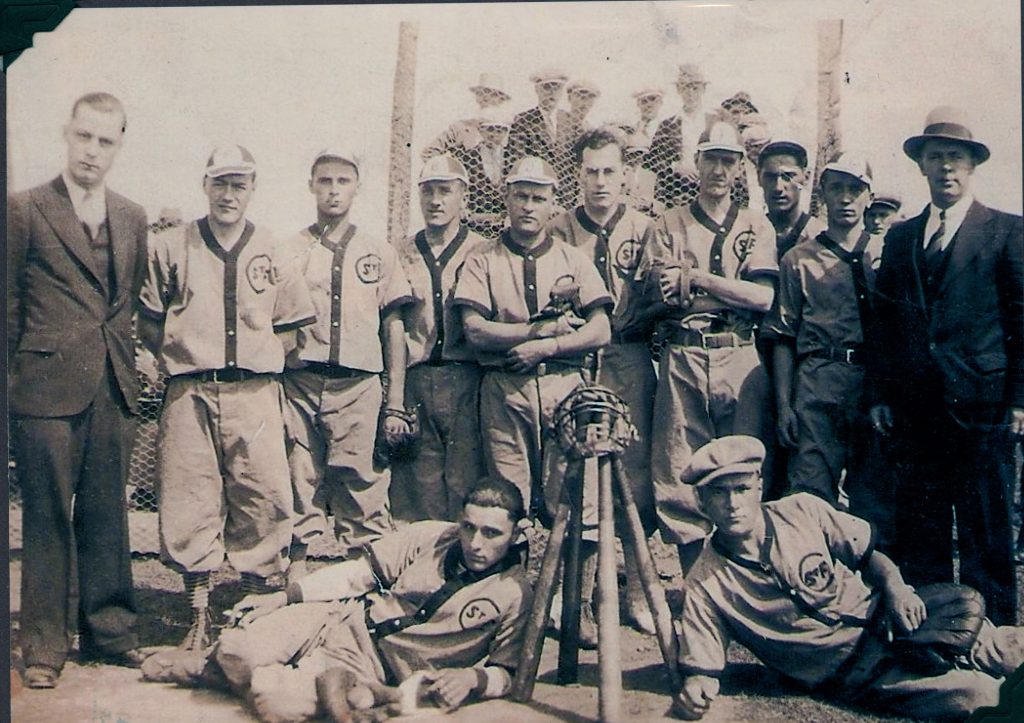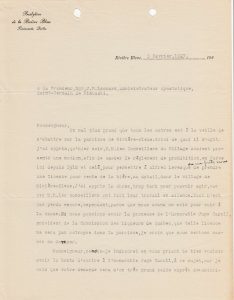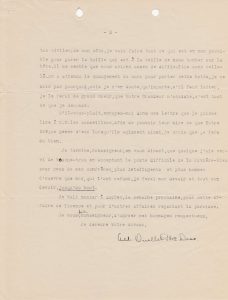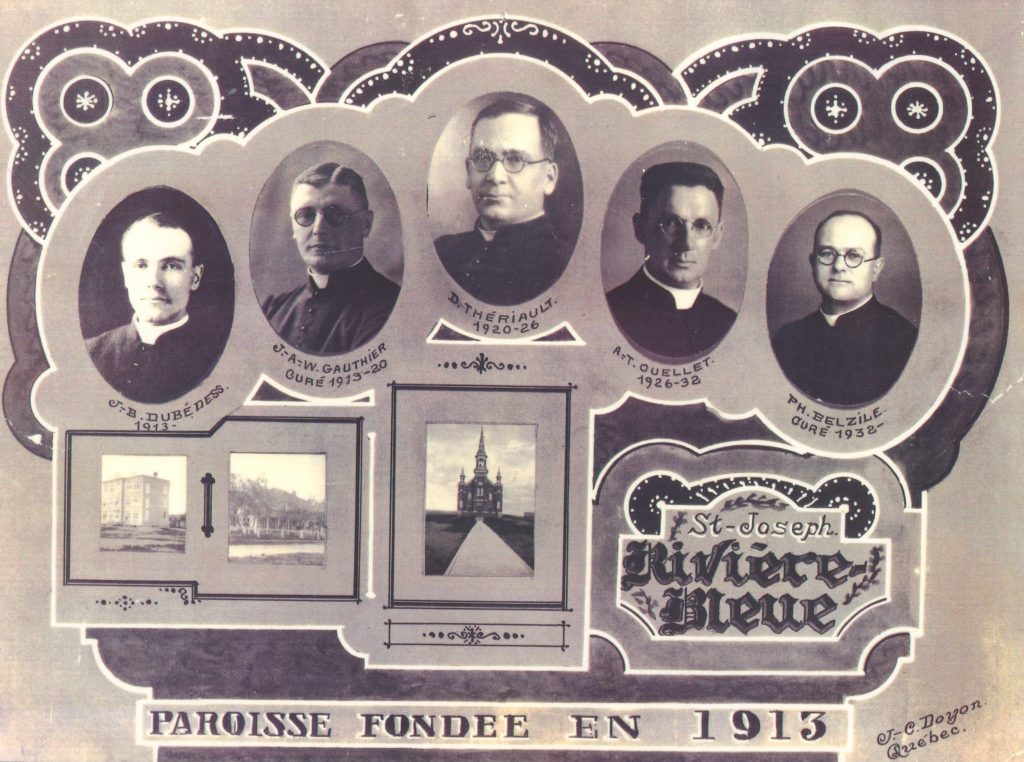Alfred Lévesque: between popularity and opposition from the clergy
In order to carry out his activities, Alfred relied on the collaboration of hundreds of people who were very well paid for that period. Indeed, while regular employees elsewhere received only $4 a day, his drivers could receive $12 a day – that was half the salary of a week’s work in a sawmill! Regardless of how he is portrayed, Alfred Lévesque and his illicit trade certainly had a significant economic impact in the region. The smugglers were also very involved in parish activities such as bazaars, charity events and sports activities.

Les Malécites baseball club sponsored by Alfred Lévesque. Source: Corporation du Patrimoine de Rivière-Bleue.
The priests of Rivière-Bleue and elsewhere fought hard to put an end to the bootleggers’ illegal activities even though they profited from their generosity, as shown in this correspondence between Father Ouellet and the Bishop in 1927:

Correspondence from Father Ouellet to the Bishop of Rimouski on February 3, 1927. Source: Archives of the Diocese of Saint-Anne-de-La-Pocatière.

Correspondence from Father Ouellet to the Bishop of Rimouski on February 3, 1927. Source: Archives of the Diocese of Saint-Anne-de-La-Pocatière.
In the letter, Father Ouellet expressed his dismay to the Bishop that the municipal council wanted to abolish the bylaw prohibiting alcohol in Rivière-Bleue in order to allow Alfred Lévesque to obtain a retail sales licence for beer. He asked for the bishop’s help to make the elected councillors see reason and to also put pressure on the judge who would receive the licence application.


